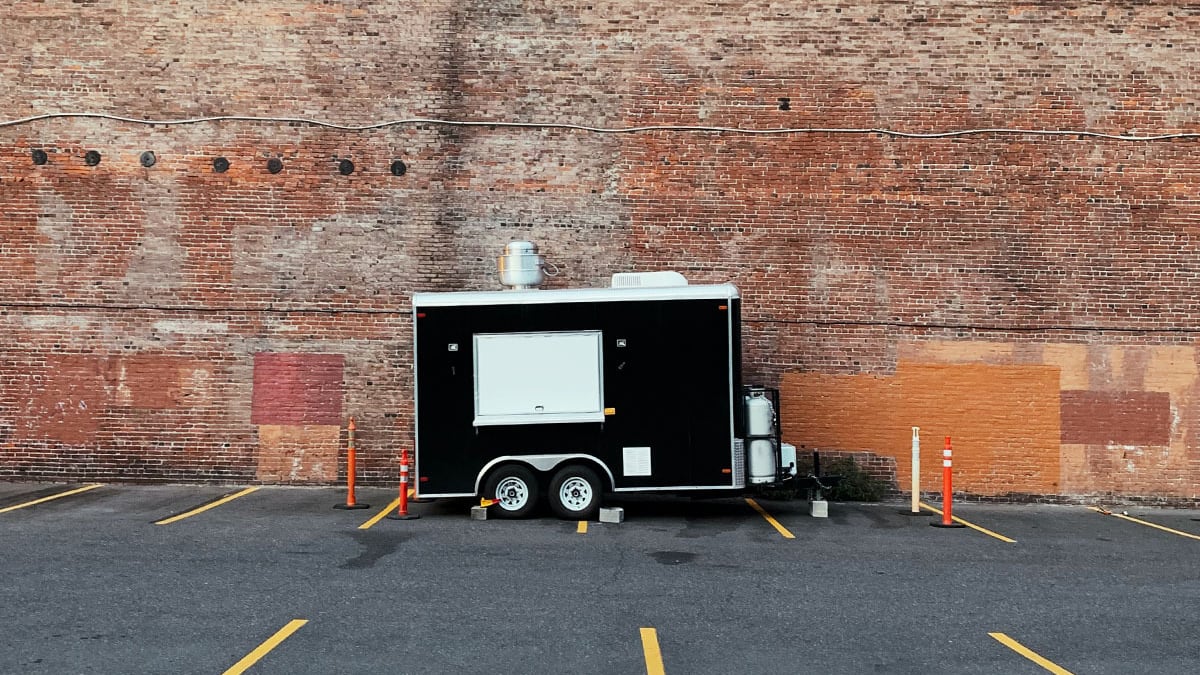Food carts are a $2 billion-plus industry, according to trusted analytics firm IBIS World. Parked across the country, over 20,000 food carts serve unique grub inspired from across the globe. When it comes to the best food cart city in America, Portland, Ore., arrives at No. 1 on Food Truck Nation's ranking, with over 600 food carts serving the community.
With this in mind, sustainability becomes more crucial—on behalf of both food carts and customers. Through various green initiatives, several of Portland's popular food carts contribute in reducing their carbon footprints and customers can too with sustainable, on-the-go products like Public Goods' reusable water bottles, bamboo straws and beeswax wraps.
Kim Jong Grillin, serving authentic Korean dishes since 2014, goes through 300 pounds of kimchi per week. As a means to source locally and "keep the creativity going" in Portland, owner Han Ly Hwang sources vegetables from Boohon Market, a family-owned Korean grocer.
Depending on seasons, the market sources napa cabbage, the main ingredient in kimchi, and daikon, a root vegetable that gets pickled—two staples on Kim Jong Grillin's menu—directly from Korea or Korean farms dispersed in Tacoma, Wash. Finding local farmers who can handle the demands of a 300-pound-per-week kimchi-serving business are obstacles Hwang is no stranger to, revealing emerging limitations in the context of sustainability.
Hwang decided to remove bottled water from the menu after considering the amount of plastic he was enabling, "It just broke my heart, so I said, 'Fuck that, no more bottled water.'"
Though Portland allows food carts to erect free water refilling stations, the water must attach to the cart's water tank. But carts that run entirely on tank systems, like Hwang's, cannot provide that service. Keeping reusable water bottles on hand, like Public Goods' BPA-free vacuum bottle made of eco-friendly materials or these natural anti-microbial bamboo straws, enables customers to make positive impacts by eliminating single-use cups and straws.
Another approach to environmentalism materializes in packaging. Delicious menu items like the Bolgogi, juicy strips of beef with kimchi, sesame sprouts, daikon Bon Chan and rice, come served on 100% biodegradable boxes from BioPak, a leading packaging company in the industry. When Hwang tested the boxes and left food in them overnight, they turned to mush. Counter that with landfill-clogging foam containers and plastic cylinders some businesses continue to package food with.
Even their equipment, used appliances thrown away or liquidated by restaurants, upholds sustainability. "There is so much equipment out there that is 100% repairable," said Hwang, who's "never bought anything new." He recommends a local Portlander whose acre and a half of kitchen equipment is waiting to be brought back to life, like the current grill on Hwang's cart. When it's time to close shop, Hwang cleans his equipment with Kleen Warrior, a biodegradable enzyme-based oil soap that contains zero phosphates, ammonia or abrasives.
Nestled in the Bite on Belmont, a small village of food carts, sits Viking Soul Food whose Scandanavian dishes have satiated palates for a decade. To retain sustainability, they source produce from local farms, including Coyote Ridge, a Certified Naturally Grown farm whose principles align with organic certification.
Their Norwegian meatballs, pork and beef balls jeweled with caramelized onions on a bright bed of pickled purple cabbage, are plated with as much thought as where they're sourced from. Pork comes from Carlton Farms, a small, family-owned meat producer who has collaborated with Pacific Northwest family farmers committed to natural, humane raising methods. And from Painted Hills comes grass-fed/grass-finished beef, a result of the pandemic's price gouging in factory farm meat. This, owner Megan Walhood admitted, "could be potentially a good thing for more responsible forms of meat production." Generally, however, she uses feedlot-finished beef due to price. "At the end of the day we feel that paying our employees a living wage takes precedence, and we try to balance environmental sustainability with social sustainability."
Most food items come served in either recycled wax paper and foil or compostable paper boxes. Pre-pandemic, reusable trays and silverware were available for customers dining on premises.
As an operating business owner during a pandemic, Walhood fears that many of the city's moves toward sustainability and the current practices just aren't considered safe under COVID-19. "We'll probably see a dramatic increase in waste," she said. "I'd like to see creative solutions to this, though I'm not sure what they're at this point."
Perhaps enticing incentives, like offering discounts to customers who bring their own reusable containers or wraps like these beeswax wraps from Public Goods to package food, can drive greener initiatives.
Walhood would love to use customers' reusable containers, offering to disinfect them before use, but COVID-19 regulations may deter that for now.
Hwang has recently sustained eight heads of napa cabbage at home with plans to pack it into kimchi and sell on his cart.
Portland can also force landlords to adopt a practical composting program on each food cart lot to offset resources from getting dumped into landfills.
Adhering to sustainability for food carts and customers is a two-way street met with challenges. But by adopting small practices each day—sourcing locally, eliminating single-use items—mealtime becomes another opportunity to help the planet.

